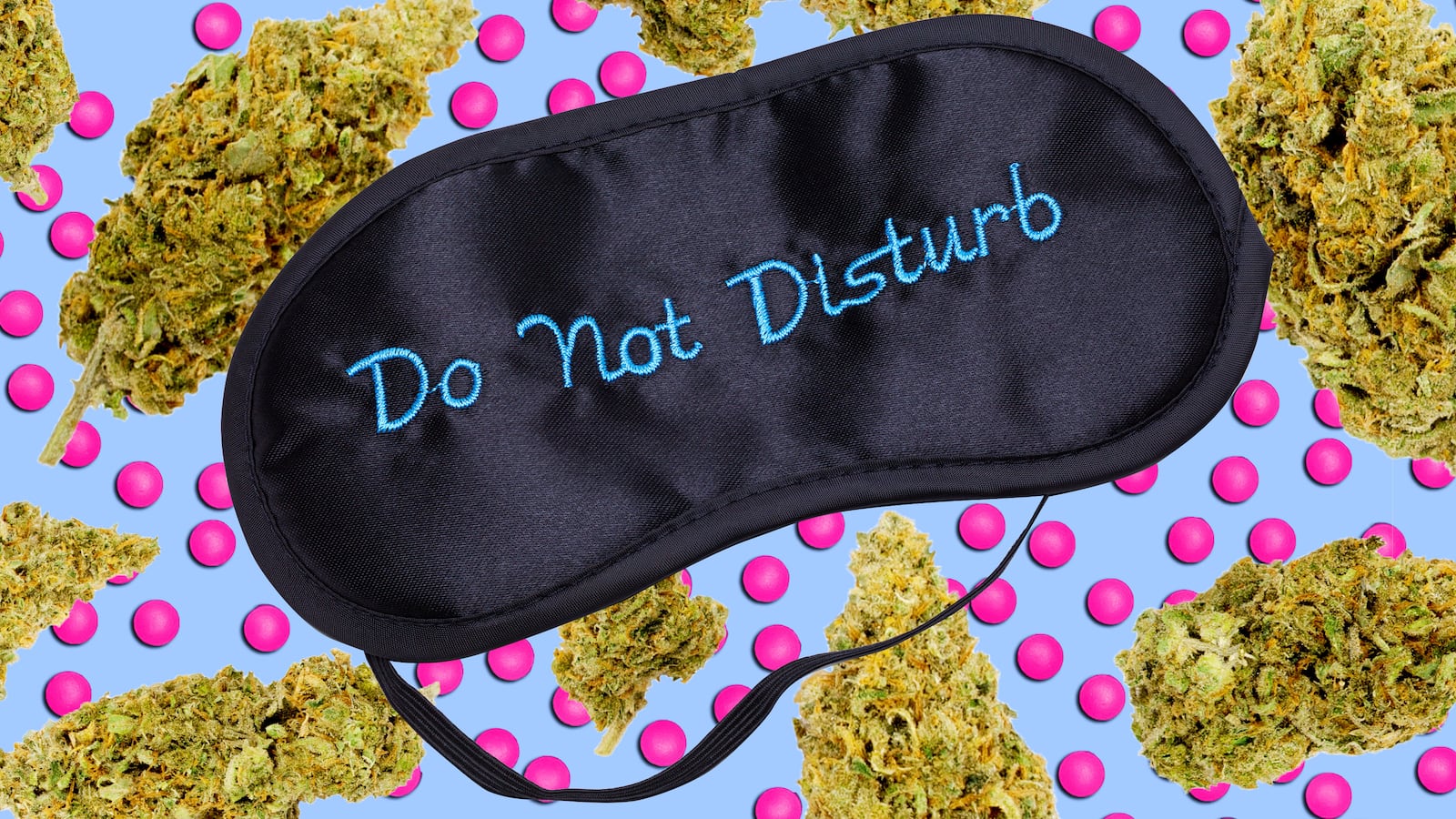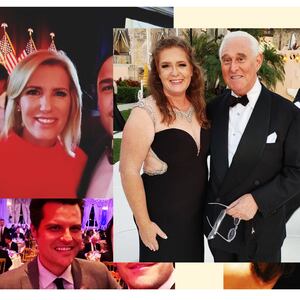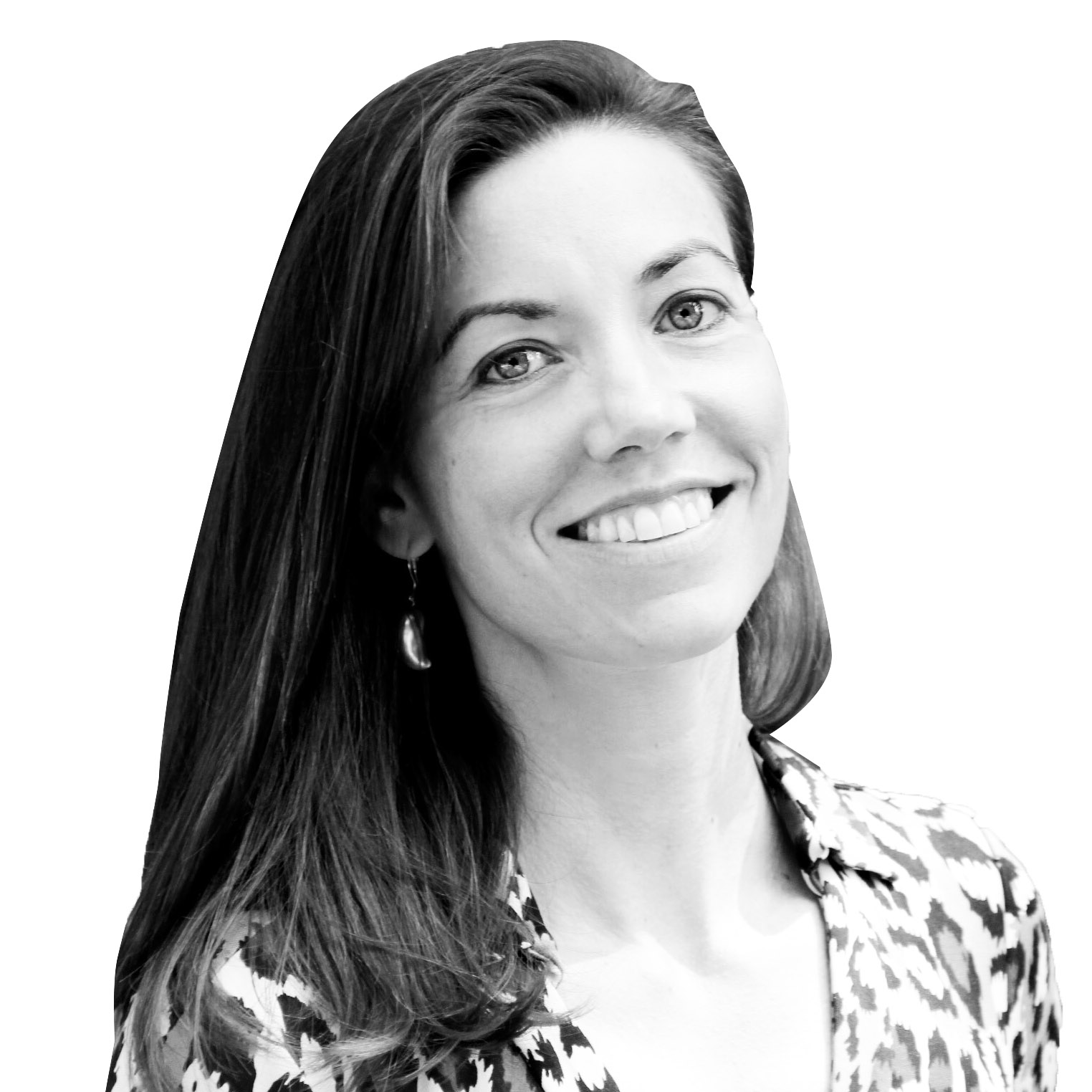One emergency medicine doctor at a New York City hospital has lost count of the number of sleep medicines she’s tried since the coronavirus took over her life in February.
First it was temazepam and then trazodone, though even tripling her initial 50 mg dose didn’t help. She’s been prescribed two different antidepressants, and tried medical marijuana.
One night, she said, she took seven Benadryl.
“And my doctor was like, ‘What happened?’ And I was like, ‘I didn’t sleep,’” said the emergency medicine doctor, who spoke to The Daily Beast on the condition of anonymity because she didn’t want her employer to find out she sees a psychiatrist or takes medication.
Her newest cocktail: a combination of Ativan, melatonin, and high blood pressure medicines. But there are still days, she said, when she drags herself into work on no sleep at all. “It absolutely affects how I do my job,” said the doctor.
Of course, getting to sleep isn’t even half the battle. Even when her medicines work and she can drift off, she finds herself woken up by a surge of adrenaline a few hours later.
And then there are the night terrors.
“For a while, I was terrified of sleeping,” she told The Daily Beast. “I didn’t even want to take my medicine to go to sleep, because you’d just have really bad dreams of your patients dying and you couldn’t save them.”
Since the coronavirus went from curiosity to pandemic, frontline health-care workers tasked with caring for the hundreds of thousands of patients passing through their clinics, emergency departments, and hospitals have been mired in sleep disorders and insomnia. One study of New York City health-care workers treating COVID patients this spring showed that 75 percent of respondents had at least some insomnia and that, on average, they were sleeping less than six hours each night.
Now, as the second wave of the virus pummels the United States, experts say that percentage is likely much higher—and that the arrival of a vaccine, while encouraging, offers little in the way of a respite.
“It’s a crisis,” said Dr. Jessi Gold, a psychiatrist at Washington University in St. Louis who specializes in the mental health of health-care workers.
“Pretty much no one is sleeping,” she added. “And that makes sense, because if you think of sleep as a symptom of acute stress, well, this job is in many ways an accumulation of traumas. There’s the anxiety of, ‘Am I going to get sick? Am I going to get my partner or my children or someone else sick?’” Gold said.
“And then there’s just so much death.”
In the short term, these sleep issues have severe consequences for the profession, according to Gold, who likens working on little sleep to “drunk driving.” But other doctors say the long-term consequences are perhaps even more dire.

“We’re never going to be the same again,” said Dr. Tsion Firew, an assistant professor of emergency medicine at Columbia University Medical Center in New York City.
In May, Firew, who is also struggling with insomnia but does not take prescription sleep aids, co-authored a study that found more than half of frontline health-care workers during COVID were experiencing anxiety and depression.
“The best medicine for someone who is going through a mental trauma, you advise the person or patient or find a way to avoid the trauma so they can begin the healing,” she said. “But for us, we’re still in it. We’ve lost our friends, our colleagues, and some of us have lost our family members. So it’s going to be a thing that’s going to haunt us forever.”
For some health-care workers, seeing colleagues finally receiving the vaccine was one of the first bright spots since the pandemic began.
“This week, there happens to be some optimism,” said Dr. Vignesh Doraiswamy, a hospitalist at Ohio State University Medical Center. Doraiswamy said he sleeps between five and six hours a night, but hasn’t yet resorted to prescription medications.
But he and other health-care workers said that the vaccine’s slow rollout and the rising number of new cases and deaths—and the crushing impact on hospital capacity—vastly overshadowed the hope for relief.
“The next couple of weeks are going to be even tougher,” Firew told The Daily Beast, adding, “It’s very difficult to fathom what might happen with the holidays and people traveling and just peoples’ complacency. And once you see the number of cases rising, the next thing that happens is the wave of the dead. So it’s just nonstop terror, unfortunately.”
One Bay Area geriatrician, who spoke to The Daily Beast on the condition of anonymity because she, too, didn’t want her employer to know about her usage of sleep medicines, said trazodone didn’t work.
Neither did CBD or CBD with THC, the antidepressant duloxetine, melatonin, Sleepytime tea, or “obsessive knitting and watching Star Wars.”
The two anti-anxiety meds she’s on now, she said, help sometimes. But on Friday night, she still found herself awake at 4 a.m., replaying a PCR test she’d given to a symptomatic patient that afternoon. The patient, she said, was confused and kept taking off their mask. And with the second wave limiting PPE yet again, she’d been using the same N95 mask for a week. She felt like she’d been exposed, and she wondered if she’d brought the virus home to her partner and his son.
“I worry about the effects it has on my overall wellbeing and my longevity in the profession,” she said. “I thought I had things treated better once I made this medication switch, but as things have come up again, it’s reared its ugly head. And all the medication in the world isn’t going to change the external circumstances.”
Sleep disorders were never rare among doctors and nurses in emergency medicine and other specialities with shifts that vary from morning to night, Gold noted. What’s different now, she said, is the sheer volume of health-care workers experiencing them and just how resistant these disorders have become to treatment.
“Sleep is hard to treat. Period. Exclamation point,” Gold said. “Sleep in general is hard to manage. And then if you throw in a significant stressor like COVID—I tell a lot of people that it’s hard to drug the situation out of them. That doesn’t mean that medication can’t help, but it does mean if the stressor is still there, it’s still there. I don’t have the ability to do an Eternal Sunshine of the Spotless Mind.

“Sometimes, I wish I did.”
What haunts Doraiswamy most when he’s lying awake in his bed at night are the conversations. He’s asked people in their twenties if they have a living will or if they’ve thought about what it means to be put on a breathing tube. He’s told countless children that their parents won’t make it through the night.
“Elderly couples always break my heart,” he said. “The number of times I’ve had to tell someone in their eighties that your loved one’s not doing well and we’re doing the best we can, but probably it’s not enough... And never did I think I’d be having those conversations over the phone.”
The emergency medicine doctor in New York who resorted to trying seven Benadryl said she often finds herself replaying the deaths of two men, both non-English-speakers, who died early in the pandemic.
“You’re telling them it’s going to be fine, it’s going to be fine. But you know it’s not going to be fine,” she recalled. “I knew that I was lying to them. And they both passed away in the ER, not in a room. There was no dignity in that.”
Without an effective sleep regime, she said, she and her colleagues at the hospital have more or less given up on sleeping well, and instead turned to coffee to stay awake. But even that had an unexpected side effect: now many of her colleagues, she said, have gastric ulcers. On Sunday, one doctor she works with went for a second endoscopy. She also has symptoms of an ulcer, she said, but it hasn’t been diagnosed.
“No time to get an endoscopy,” she wrote in a text message to The Daily Beast. “I’m your typical bad patient doctor.”
And this points to a grim irony, Gold said. Although doctors and nurses know more about medication and treatment, they’re often reluctant to seek treatment themselves, especially when it comes to issues of behavioral health like anxiety, depression and, of course, the insomnia currently gripping the profession.
“There is a ton of stigma in general about mental health in medicine and this culture of stoicism and a fear that if you look weak it will affect your job,” Gold said.
This is a huge problem as the pandemic continues to pummel the people charged with blunting its impact. The same study showing high rates of insomnia among New York health-care workers this spring indicated that nearly 60 percent were experiencing acute stress, often a precursor to post-traumatic stress disorder. In April, an emergency medicine doctor and an emergency medical technician, both of whom had worked on the frontlines of the pandemic in New York, died by suicide.
“Unfortunately, just in the medical field, it sometimes takes courage to seek care. It’s not like it’s easy to talk about, the way you talk about your high blood pressure or diabetes,” said Firew, who had been a colleague of the emergency medicine doctor who died.
That’s why, the other New York emergency doctor said, even when she hasn’t slept at all, she drags through the day at work, rather than call in sick. And when she decided to see a psychiatrist for her sleep issues, she said, she went to extreme lengths to make sure there wouldn’t be a record, choosing a therapist who kept paper and not electronic files.
Despite the fact that she’s drowning in more than $300,000 of medical school debt, she also pays for her visits with cash rather than go through her insurer.
“There’s all this HIPAA stuff, but let’s be real, they read your charts, and God forbid you come in with an elbow dislocation and they see that your last visit was with a psychiatrist,” she said. “You don’t want that to be read.”
Gold said that while fears like this are widespread, they’re only partly based in reality. The stigma is real, she said, “but the idea that they’ll ding your license or you'll lose your job, most of that is lore.”
Still Gold said that seeking professional help, even under the table, is a best-case scenario. Because of these fears, many doctors won’t seek medical interventions at all, or will end up self-prescribing.
“Medication might not be ideal, but you have to sleep,” she said. “And I’d rather they ask me for help than turn to prescribing themselves benzos or opioids, because that would be a problem.”



